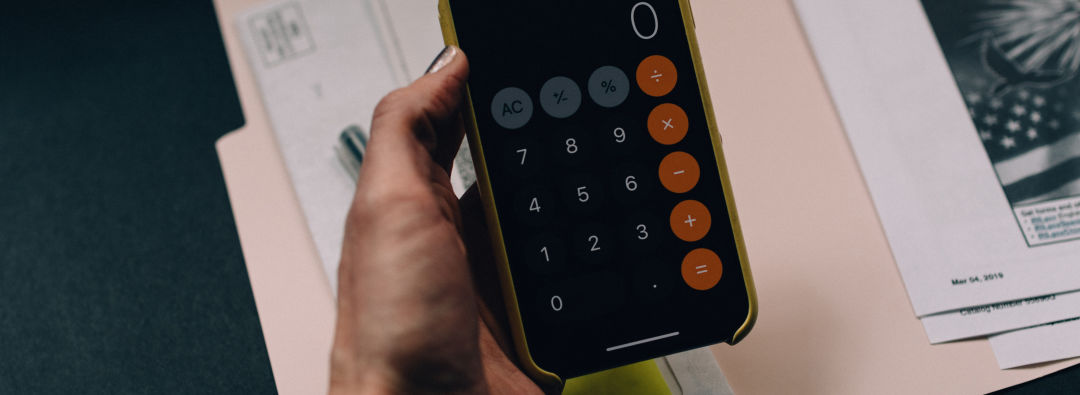By using our site, you agree to our cookie policy.
How do I sell my house privately?
Selling a house privately is definitely possible — but it's more complicated than you might think. We break down the private selling process, step by step.

The step-by-step to private house sales
Buying or selling a house without using an estate agent is called a private sale. A lot of people find the idea of selling their home privately appealing because you can avoid paying costly estate agent fees — and save thousands. But it’s not always straightforward. If you decide to sell your house yourself, you’ll be in charge of every part of the process — advertising, marketing, arranging viewings and handling negotiations. Plus, you may not have any guidance for the closing process and finding a solicitor, which can feel a little overwhelming. We think that you should have help every step of the way, without paying a penny. (That’s what we’re here for.) But selling is a personal choice, so we’ve laid out everything you need to know about private house sales so you can make the right decision for you. How do you sell a house privately? It's a long process, so let's take it one step at a time. 
First things first — get your home in the best shape possible. Getting it ready for listing will also help you prepare for viewings later on, so it’s worth taking your time to get it right. You should focus on presenting your house in the best possible light by cleaning your bathroom and kitchen surfaces, tidying away clutter, and highlighting any local amenities that are likely to interest potential buyers who are viewing your home. If you notice any easy fixes — like adding a fresh coat of paint — you might find that you can get a huge improvement without spending a lot of time and money. Pricing is probably the biggest factor in your sale — and, without an estate agent, you’ll have to do your research. Our online house price calculator gives you an estimate of what your house is worth based on your address and the size of your house. It’s worth using the calculator, but also checking local listings, to get a sense of where your home should fall in the market. Comparing your home to other similar properties — and what they've actually sold for, not just were listed for — can help you find the sweet spot. 1. Get your house ready for private sale
2. Set your asking price
Photos are the key to your listing — so if you’re selling your house privately, you’ll want them to have a polished feel. Whether you hire a professional or do the photos yourself, you need to make sure that they’re high-quality and that they show your home at its best. Don’t be afraid to rearrange furniture and lighting to really make your home look as open and bright as possible — and you want to aim for at least 7-9 photos. You want to make sure viewers feel like they’re getting a good look around your home (and that there’s nothing to hide). If you want even more tips, we've put together a guide on how to take great photos when selling a home which can be really helpful for a private sale. 3. Focus on high-quality photos

Listing is vital for getting your home in front of buyers, but it can be a little tricky when you’re selling your home privately. Most large property portals don't allow private sellers to advertise their properties online, but there are several ‘for sale by owner’ websites out there. You can try places like The House Shop and HouseWeb to get started. You could also try your local newspaper — and don’t be afraid to use social media. You may find that you have friends of friends on the prowl for a new home. When you're selling a house on your own, you may have to be a little creative to make sure you're getting as many viewers as possible. 4. List your property online
We understand why you would want to avoid paying thousands in estate agent fees, which is exactly why we'll sell your home for free."
There are different ways to handle viewings. You could book out a day where you arrange multiple viewings back-to-back — just make sure to leave a window of time so you don’t have any awkward overlaps. You may want to fit them in at night or at weekend — the choice is yours, just try to accommodate as many potential buyers as possible. Remember to tidy away any clutter – especially from the entrance area – and give important rooms like your living room, kitchen and bathroom a good spring clean. 5. Set up viewings
Be mindful of the fact that buyers may try to haggle you down on the asking price — particularly if you are selling your house privately. This is one reason many people choose to sell with an estate agent, because buyers may feel there is more room to haggle if you don’t have experts on your side. And if you're selling to friends or family, you may find negotiating on your own can get really awkward in a hurry. For most of us, our home is our biggest asset, so it's important to get the right price for it. 6. Negotiate a price with the buyer

At this point, you want to make it official — even if it's not totally binding (we'll get to the legal side in a minute). Verbal acceptance is not enough. You need to provide written acceptance and obtain some form of identification from the buyer. You’ll also need to exchange contracts with the buyers before the offer becomes legally binding. Once you’ve accepted an offer in writing, it’s definitely time to get an expert in — they're going to help you exchange contracts. Even if you choose not to use an estate agent, you’ll need a solicitor for the paperwork and to make sure you’re protected. You may hire a “conveyancer” instead, which is just a word for lawyers who deal with property transfers. 7. Accept an offer
8. Instruct a solicitor
Once you instruct a solicitor, they’ll help you make sure that the contracts are all signed — and there may still be some renegotiation. The buyer may run surveys and find defects that they think should lower the purchase price and you’ll have to decide on things like a completion date, which is when the keys are exchanged and when you have to move out by. Your solicitor will help guide you through (but having an estate agent can make the process a lot easier, too). 9. Follow through until completion

When it comes to selling or buying a home privately, it really is up to you — your home is probably your biggest asset, so you need to choose what to do with it. We understand why you would want to avoid paying thousands in estate agent fees, which is exactly why we'll sell your home for free. We think it helps to have an expert team by your side, every step of the way — but it's your choice. So do some research and have a think about the best way to sell your home.
home valuation
Book a valuation
If you're seriously considering going on the market and want to know how much your home is worth, book a valuation with a Strike Agent. There’s never any obligation to sell with us. If you do want to go ahead, we can have your home online in as little as a few hours.

Strike feel free
Copyright © Strike Limited 2024

